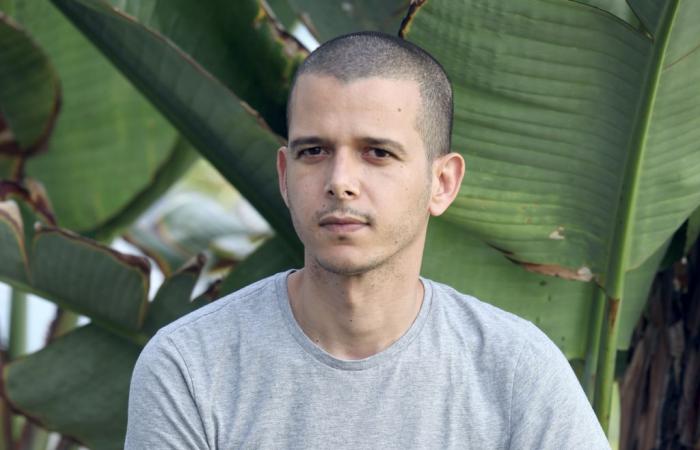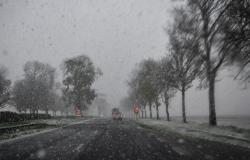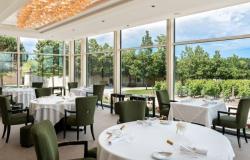The Bastion of Tears was particularly acclaimed by critics and was nominated for numerous prizes this year (Goncourt, Décembre, Médicis, Grand Prix du roman de l'Académie française). How do you experience this success?
I am very happy and surprised by the reception of this book. I thought that going into the deepest details of Moroccan life would not interest readers in France, and precisely the opposite happened. I understood that the more precise we are, the more we can reach people who are a priori very far from this life.
The Bastion of Tears pursues themes that haunt you (marginality, exile, social inequalities). But where does this book stand compared to previous ones like The one who is worthy of being loved or An Arab melancholy ?
I think that each novel that I publish allows me to go to new depths, if only to understand how we all move through existence, and how the memories of others interact with ours. All my works are voice books. There is not only that of a hero who looks a little like me, but also other voices that clash. In The Bastion of Tearsthe confrontation is between the main character and his sisters, the dead and the living, the past and the present. It reaches an immense level of fire, even more powerful than in the other books.
You keep coming back to that memory of when you and your sisters were together when you were living promiscuously. Could we talk about these in particular?
My sisters were incendiary, deconstructing everything and constantly devising survival strategies, ways to impose themselves in the world. For me, they were the school I had to stick to. When I returned one day to Salé, the town I come from in Morocco, to sell my deceased mother's house, I noticed how much my sisters had aged. The place where we grew up together no longer existed and we were like wandering souls. Once our parents are no more, what do we do with this bond that unites us? It was by asking myself this question that I understood that the material in the book could help me answer it.
We have the feeling when reading your book that there is a permanent oscillation, a tearing between the desire to defend the people you are talking about, at the same time as a desire to take responsibility for all the evil that has been cause…
Over time, this bond that Youssef, the main character of the novel, has with his sisters becomes like a ruin. We must resist our transformation into ghosts of ourselves, what power does with the love that connects us and which can no longer even be expressed. The character understands that his sisters will soon die and that he cannot leave them behind without saving something of their bond – even if in childhood, they did not protect him from the violence of the world or rape.
“This book dissects how power penetrates the hearts of people who love each other. »
Is this work a kind of wandering, as much through the streets of Salé as through your own soul and the memory of those who left their mark on you?
Obviously, it is a wandering in which Youssef tries to constantly renegotiate with the world. The climax of the work is the hammam episode, where the hero sees a young child being raped by a respected old man. He sees that what happened to him in this place 40 years ago has never stopped happening again. At that moment, he understands that the river of love must really overflow. Just after this passage, his empathy, especially for his sisters, becomes greater.
Throughout the novel there is a particular violence of this reality which makes anyone who has power and money an untouchable person. Is this something that still resonates with you today?
Power and the rich are always in the same alliance, whether in Morocco or elsewhere in the world. This book dissects how power penetrates the hearts of people who love each other. We believe we are free, but the system we live in is already far ahead of us. He never stops renewing his traps. It takes us a long time to understand this and, in the case of Bastion of Tearsto understand that the relationship between my sisters and me is this power that established it between us. They are convinced that I have succeeded in France, even though here, I am only an immigrant.
And conversely, I believe that they experience more love and happiness, because they are with family, while I am alone. Youssef wants to awaken the rebellion between all these beings: he confronts them emotionally, psychologically, memorially, politically, through what they have experienced together and not through what power does to them. And by realizing this confrontation, he sees how power separates one from the other. I want to somehow propose a method of solidarity through this book.
A stock
Buy on Fnac.com
What is the “bastion of tears” after all?
This place, which physically corresponds to the ramparts of the city of Salé, is a symbolic window for healing beings. It serves not only Youssef, but a much larger whole. It is very important that an individual fight joins others. Literature is there to thwart this discourse of power or religion. It serves to deconstruct, while offering another way of reaching out to others.
This climate of permanent fear that you describe having experienced, as a homosexual in Morocco, can we say that it persists today?
On the one hand, I grew up with the idea that I was the only homosexual in existence. I was always afraid of what was going to happen to me. So I had to be smarter than the others to survive Today, when you go on social networks, you see that there are a large number of gay people who are out there. Something has definitely changed. But what has changed comes from those who have the courage not to wait for those in power to change their outlook on them and for the laws that criminalize them to be transformed. I find the Moroccan LGBTQIA+ community to be heroic. She dares to live in the light, even though the will of those in power to keep them in fear still exists. Of course, it's far from easy for her, but I don't want to lock her into debates that would push her even further.
In Morocco, the French language is the language of the elite. How does it feel to write your novels in this language now? And to see received the French Language Prize, in particular?
Even though she did not speak French, my mother never ceased to mix several worlds and relationships with the world. In my books, I do the same thing, I write in French, but I come with the imagination of the poor Moroccan. So I make sure that something other than simple respect for the French language happens and I think that is the only way to enrich it. It was thinking of my mother that I received this award.






